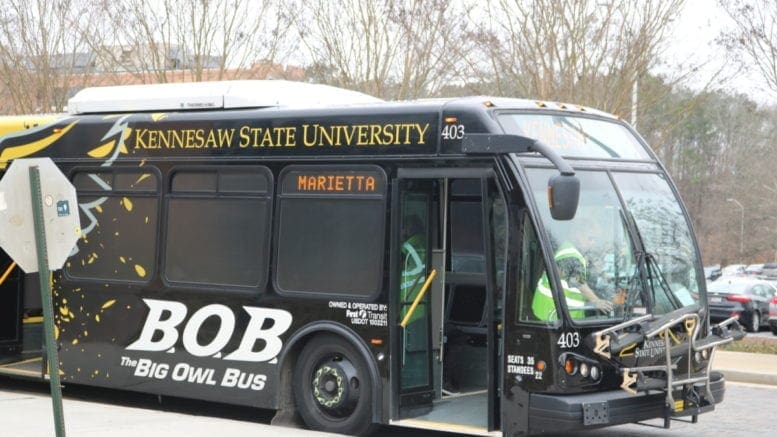According to a news release from Tiffany Capuano of Kennesaw State University, KSU is now one of the partners for the Diplomacy Lab, a U.S. State Department program that utilizes college students and faculty to work on complex global challenges.
According to the news release, “Kennesaw State is one of 35 universities involved in the public-private partnership that enables the State Department to ‘course-source’ research and innovation related to foreign policy challenges. Partner universities conduct research on the State Department’s most critical matters, including climate change, democracy and human rights, counterterrorism, global health, energy security, gender equality, economic policy trafficking of individuals, food security, and conflict and stabilization.”
Sherrill Hayes, program director for the Ph.D. in Analytics and Data Science and professor of conflict management, who will serve as KSU’s Diplomacy Lab coordinator, said in the news release, “This is an important step for Kennesaw State. The Diplomacy Lab offers a highly interdisciplinary approach, and having these abundant opportunities to do applied policy research will only continue to grow Kennesaw State’s reputation as an R2 powerhouse.”
The State Department will propose projects each semester that they determine match the strengths of the universities taking part in the Diplomacy Lab.
Hayes gave as an example a possible project on cryptocurrency in developing countries that could involve KSU faculty members with expertise in economics, computer science, international affairs, or sociology.
There are 55 projects available for the upcoming fall semester, and each university can submit bids for up to six of those projects.
Once projects are assigned, KSU students can become involved through teams or class projects. Faculty will guide students in developing policy solutions to the challenges outlined by the State Department.
According to the news release, “Students will meet with State Department officials to gain context and direction for the project and also discuss their research through video and phone conferences throughout the semester. Students then present their results and final work, which may take the form of short policy memos, research papers or statistical analyses to department officials.”
